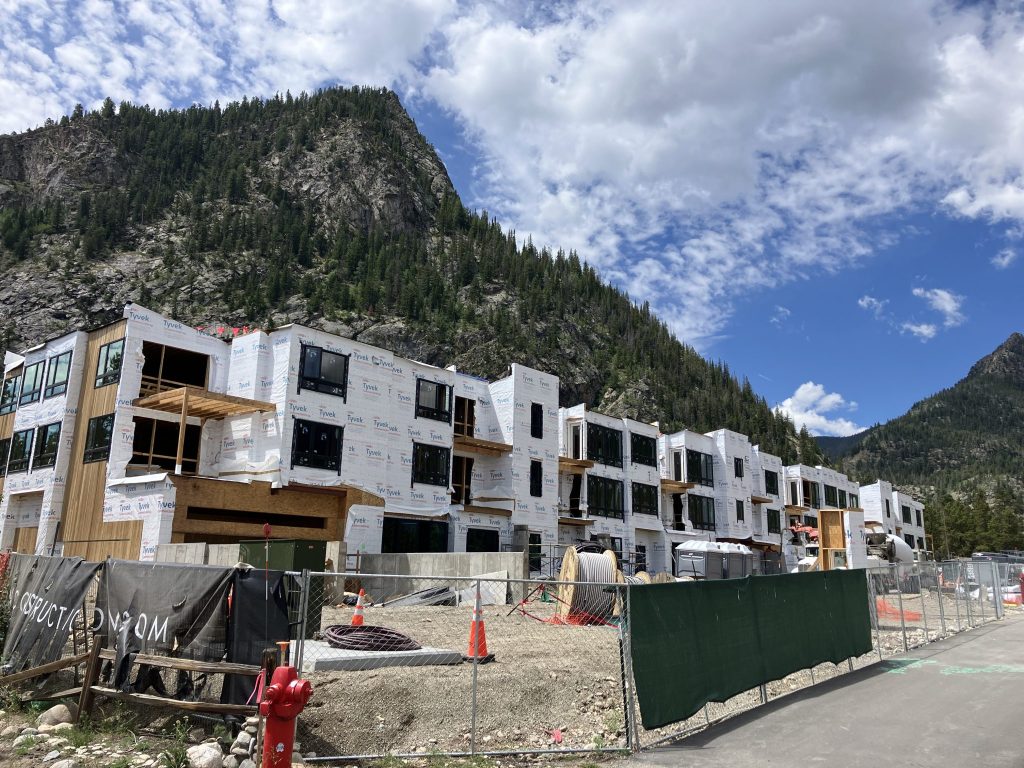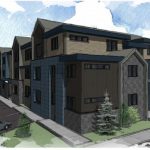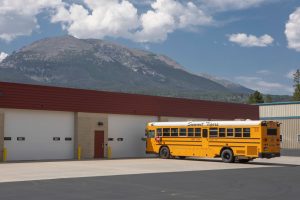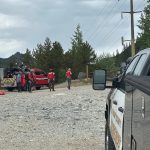Frisco officials are looking into changing restrictions and requirements for future workforce housing

Ryan Spencer/Summit Daily News
With new additions to council, Frisco elected officials renewed discussion about if new standards should be set for affordable housing eligibility.
Officials at a June 10 Frisco Town Council work session worked to determine the future of the town’s housing covenants. Topics of discussion included whether people who own other properties can live in workforce housing, if asset testing is appropriate and what type of commissions real estate agents can collect on deed-restricted property sales.
Frisco has around 155 properties with deed restrictions or restrictive covenants on them that vary in requirements. Some deed restriction properties available for ownership have no resale price cap and have requirements mandating the owner live and work in the area while others have stricter limitations involving income testings and resale calculations.
The most recent housing covenant and deed restriction option was passed by council in 2019, and owners may opt into that if they choose to. The town cannot force owners into opting into a new covenant, according to communications director Vanessa Agee.
“Likely, there will continue to be a variety of covenants, and any new covenant will not be available or desirable for every type of workforce housing development or unit,” she said via email.
Officials discussed wanting to address inconsistencies in the town’s housing covenant to create a more streamlined process and uniformity going forward while noting that the push to refresh rules is also coming from constituents.
“One of my big takeaways from public comment/emails that we have received is that folks want the ability to build wealth,” said council member Zach Ryan, a more recent addition to council. “They feel that we are hindering them and doing that under (current housing covenant).”
Asset testing and the ability to own other properties took center stage at the June 10 meeting as officials hashed through what measures actually benefit locals and which ones have the ability to open up loopholes.
While officials did not vote or make any official decisions, they leaned toward allowing prospective deed-restricted property owners to own one other property at the time of purchasing. They also favored having no limitations on how many properties a person can acquire after purchasing a deed-restricted property.
Officials contemplated situations where people inherit something like ownership of a family cabin and how they might be different from someone owning multiple properties in a landlord capacity in a place like Denver or owning second or third homes that have values higher than the deed-restricted property they are living in.
They discussed how real estate helps people accrue wealth and it in turn could encourage them to seek a market-rate home in the future, freeing up their deed-restricted property to someone else who needs it. Council members like Andy Held worried about too many limitations related to asset testing and the opportunity to own multiple properties dissuading the community from buying into the new housing covenant terms the council sets because it could hinder the ability to build wealth.
Council member Dan Kibbie had concerns about the intention behind workforce housing being lost if there’s a lack of limitations.
Council member Martin Allen wanted to see a limitation on multiple property ownership before the sale, but not after the owner’s already purchased. “They could own the Taj Mahal,” he said, pointing out how overthinking extreme situations that could arise isn’t helpful when determining what is useful is a housing convent.
Town staff members explained when it comes to second or third homes, and their respective values, owned out of state, it can be difficult to verify and track if people are telling the truth. Held said people can hide their properties in trust and there’s no real way to tell if someone is being truthful about what they own and the value of it.
Most of council wanted to exclude asset testing from the eligibility process for workforce housing for many of the same reasons related to hindering people’s ability to build wealth. This was also a recommendation handed down by the Summit County Housing Authority.
In terms of real estate commissions on deed-restricted properties, council wanted to see a 2% cap.
Council plans to continue discussions around location employment. Members discussed how Vail Resorts is a major employer in the mountains, but is based in Broomfield, and wondered if there were ways to quantify if someone’s employment is serving the community directly.
This is the sixth work session where the housing covenant has been discussed. The conversation began in August 2024, paused in April when two council members left their seats and resumed on May 13.

Support Local Journalism

Support Local Journalism
As a Summit Daily News reader, you make our work possible.
Summit Daily is embarking on a multiyear project to digitize its archives going back to 1989 and make them available to the public in partnership with the Colorado Historic Newspapers Collection. The full project is expected to cost about $165,000. All donations made in 2023 will go directly toward this project.
Every contribution, no matter the size, will make a difference.










